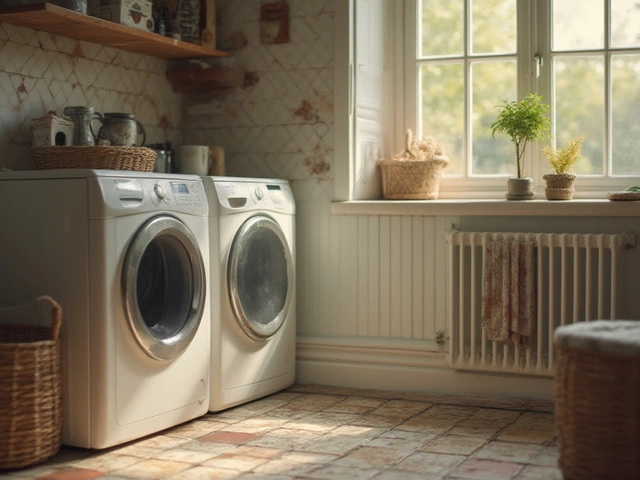Got a broken washing machine, oven, or fridge and wonder how much fixing it will set you back? You’re not alone. Most homeowners face a surprise bill the first time an appliance quits. This guide breaks down the real numbers behind typical repairs, the things that push the price up, and when it makes sense to call a pro instead of trying a DIY fix.
There isn’t a one‑size‑fits‑all answer for appliance repair cost, but a few factors show up again and again:
For the most common appliances, here’s a quick snapshot of typical repair ranges in the UK (prices include parts and labour):
These numbers are averages. Your exact quote will depend on the make, model, and the exact problem.
Seeing a price tag can make you wonder if it’s cheaper to buy a new unit. A good rule of thumb is the 50% rule: if the repair estimate exceeds half the cost of a brand‑new replacement, it’s probably time to replace.
Take a five‑year‑old dishwasher with a broken pump. If a quote comes in at £200 and a new model sits at £380, you’re looking at a 53% repair cost – not a great deal. On the other hand, a three‑year‑old fridge with a failed fan motor might only need a £90 fix, well under the 50% threshold, making repair the smarter choice.
Other signals that replacement is wiser:
If you decide to go DIY, only tackle jobs you feel comfortable with. Simple fixes like cleaning a filter, tightening a loose wire, or swapping a cheap heating element can save a few pounds. Anything involving gas, sealed systems, or electrical components hidden behind panels should be left to a qualified technician.
When you call a professional, ask for a detailed breakdown: labour, parts, and any extra fees. A transparent quote lets you compare offers and avoid hidden costs. Most reputable services, like Bognor Regis Appliance Repair Experts, will give you a clear estimate before any work starts.
Bottom line: knowing the typical price ranges, what pushes those numbers up, and the 50% rule helps you make an informed decision. Whether you repair or replace, a little research saves you stress and money.

Deciding whether to repair or replace a refrigerator can be a puzzling task for most homeowners. Factors like the age of the fridge, the cost of repairs, and energy efficiency play crucial roles in this decision. Getting a new fridge might seem attractive with the latest features, but sometimes repairing your old one is the better choice. Before making a move, it’s essential to weigh the pros and cons to make an informed choice.

Curious if you can fix your dishwasher without calling a pro? This article breaks down the most common dishwasher problems and explains which repairs you can actually do yourself. We’ll cover how complicated these appliances really are, how to figure out what’s wrong, the tools you’ll need, and which jobs might leave you better off calling an expert. Get practical tips, interesting facts, and a clear picture of what you’re actually signing up for before grabbing that toolbox.

Plumbers are often the go-to professionals for a wide range of home repairs, but when it comes to boilers, it's essential to know their scope of work. This article delves into whether plumbers can actually handle boiler installations and replacements. You'll uncover what specific skills and certifications are required for boiler work, why hiring a specialized heating engineer may be recommended, and the potential risks of using underqualified technicians. Whether you're considering a new boiler or need an existing one serviced, understanding who is best suited for the task is crucial.

Cracks in electric hobs can show up suddenly and cause real headaches in the kitchen. This article looks at why electric hobs crack, from common mistakes to sneaky issues with installation. You'll get practical tips on how to prevent damage and handle minor cracks. Find out when you can fix a hob yourself and when it's smarter to call for professional help. Stay ahead of costly repairs and keep your cooking space safe.

Is your washing machine considered old? Learn the real lifespan, signs it's aging, and pro tips to keep it running longer. Get real facts and advice from an expert.

A puzzling situation arises when your shower lacks hot water while the sink heats perfectly fine. This article dives into possible reasons like different pipe routes, shower valve issues, and water heater capacity. It also offers practical solutions, such as checking the temperature settings and flushing the water heater to remove sediment. Understanding common plumbing malfunctions can lead to quick fixes without calling a professional.